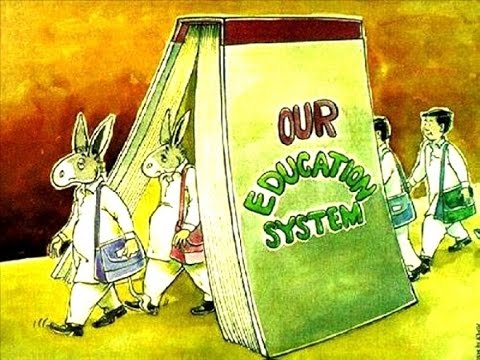Ways to Improve Education System

Ways to Improve Education System
- 1263
- 0 Comment
There are many ways to improve our educational system, but the most basic one is parental involvement. In addition to parents, teachers must also be involved in the development of students’ skills. The tax code should be fair and progressive, and teacher funding must increase. The government must also develop a comprehensive program that supports the arts and the learning process. However, even the most effective educational program can’t fix everything. Fortunately, there are some ways to improve the educational system that will benefit everyone.
Parental involvement is necessary
Parents should play an active role in their children’s educational life. However, parents should not limit their involvement to primary school years. Research shows that parents with greater involvement have less tendency to send their children to drop out. Parents of minority or disadvantaged children often lack the information and training necessary to support their children’s education. To foster better parent involvement, schools can provide support and training for parents and teachers. Here are some ways in which parents can get involved in improving their children’s education:
One way to increase parental involvement is through the improvement of the school environment. Research has shown that increased parental involvement in a child’s education improves academic achievement. In a study of middle school students, the authors found a negative relationship between parent involvement and absenteeism. High absenteeism hinders social and emotional learning and decreases academic performance. For these reasons, parental involvement is necessary to improve the education system.
Increase teacher funding
In the quest for equal access to the best teachers, policymakers must address the growing teacher shortage. This requires strengthening teacher training and improving salaries to compete with other occupations. Teacher salaries are low in many states and a recent study showed that college graduates earn 20 percent to 50 percent more than public school teachers. Teacher compensation is an important issue that must be addressed, since it is often underfunded compared to other university departments. Consequently, the government must invest in teacher education.
The debate over increasing teacher funding is not new. For decades, educators have debated whether money matters in education and whether additional funding will produce better results. But the debate has roots in the Coleman Report, a federal study of education spending that analyzed the results of over 600,000 students in three thousand schools across the country. The study concluded that the amount of money spent per student had little to do with the outcomes of students.
Build capacity of teachers
To build capacity of teachers, school leaders can create opportunities for teacher collaboration and use of key resources. They can also establish organizational structures that support teachers’ changes. This way, they can build instructional capacity and create an ongoing cycle of better instructional resources. Building the capacity of teachers in a school can make the whole system work better. But this is not easy, and it requires the support and time of school leaders. To do this, school leaders should know the instructional resources in their school.
The Grattan Institute, a public policy think-tank in Australia, has looked at the educational performance of countries in East Asia. They have found that the high-performing countries have a key factor in their success in education: high-quality teacher preparation. High-quality teacher preparation includes professional support and access to mentors and master teachers. Peer feedback is also provided by observation of classroom practices. The study also identifies ways to build the capacity of teachers in a country.
Develop a progressive tax code
There is an excellent way to increase the funding for public education: implement a more progressive tax code. Such a policy would provide a large boost to the education system while reducing economic inequality. The key is to make the tax code more fair for low-income and middle-class families, which are disproportionately people of color. A more equitable tax code would include taxes on inherited wealth and income.
Another way to increase education funding is by eliminating special tax carve-outs for the rich. Local property taxes are used to promote local spending and would no longer be redirected to state education funding. State education spending would also be more equitable, as state taxes are directed across school districts. By removing the deductions, a more equitable tax system would be created. The federal government would continue to subsidize local property taxes, but it would spend less on education.

